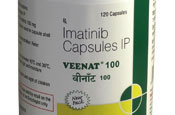 |
To the surprise of many people, improvement in cancer treatment which had remained stagnant for decades is finally taking off, and revolutionary treatments, if you have the financial means, are now available.
In 1971 US President Richard Nixon declared war on cancer by signing the National Cancer Act. Nixon's administration had hoped that unlike the disastrous war in Vietnam, the fight against cancer would be a more popular campaign leading to a quick victory. More than 40 years later, Nixon's crusade which brought this dreaded disease into the limelight by providing more political and financial support for research, diagnosis, and treatment seems to have finally made an impact.
Even though treatment for cancer boils down to burn (radiation), slash (surgery), or poison (chemotherapy), research has now made it possible to deploy highly targeted relatively non-toxic agents guided by genetics. This therapy not only includes drug, but also substances called monoclonal antibodies which have brought about important, therapeutic advances. For example Trastuzumab, sold under the trade name Herceptin, is a monoclonal antibody which is now effectively used to treat certain types of breast cancer. Monoclonal antibodies for common cancers such as lung and colon cancer are also available these days.
Imatinib (sold as Gleevec in the US, Glivec in Europe and Australia, and Veenat in India), used against a special kind of leukaemia called chronic myeloid leukaemia (CML), is the poster boy for new cancer drugs which are different from monoclonal antibodies.
Gleevec costs about US $50,000 per patient for a year, but due to the generosity of people from abroad and a Western drug company, hundreds of patients with CML in Nepal obtain this effective drug for free. Gleevec's working mechanism is genetic based, so unlike other cancer drugs which indiscriminately kill off all dividing cells (hence people on chemotherapy may go bald), Gleevec targets particular cancer cells.
Many other cancer drugs like Herceptin are very expensive and not freely available to patients in countries like Nepal. Manufacturing these new cancer drugs in developing nations is difficult due to long-standing patency laws. Western governments and drug companies claim that these stringent laws need to be in place to make new drug discoveries possible. However, as expensive cancer therapy becomes more and more effective, difficult ethical questions will arise for which there will be no easy, clear-cut answers.


